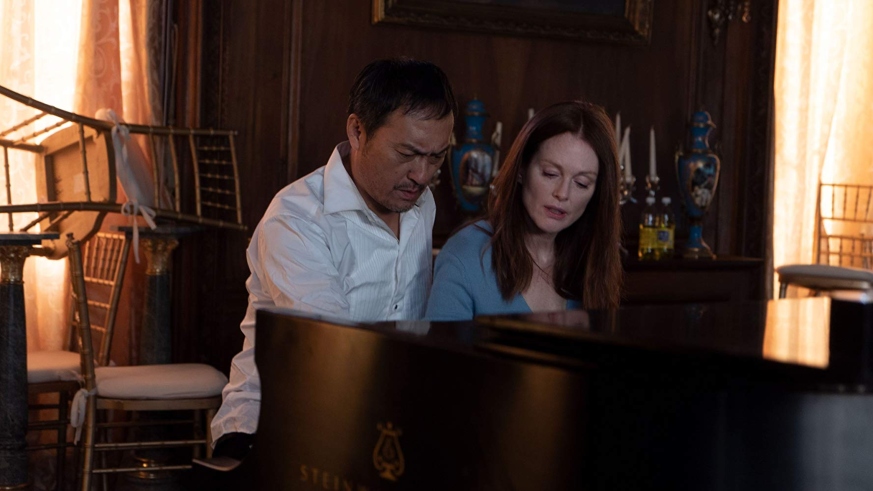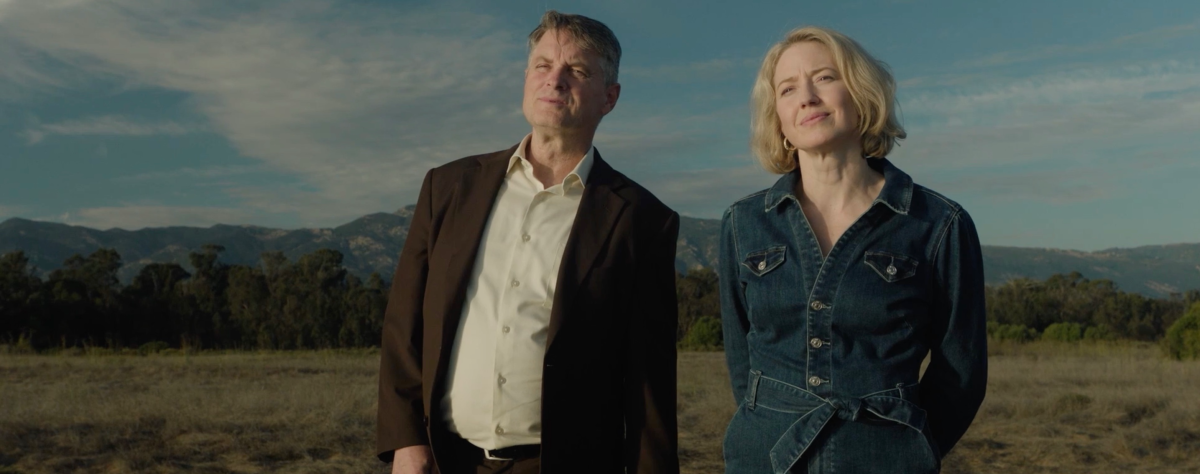The popularity of Ann Patchett’s 2001 award-winning novel Bel Canto always meant that an endless list of actors were going to be interested in starring in Paul Weitz’s adaptation.
But while the likes of Sebastian Koch, Christopher Lambert and Julianne Moore were attracted to its dramatic story of a famous American soprano (Moore) being trapped in a hostage situation after she is invited to perform for a wealthy industrialist (Ken Watanabe) in South America, Ken Watanabe believes that he was always destined to star in the film.
That’s because Watanabe recently revealed to me that he was actually in Peru until just a week before the 1996/1997 Japan Embassy hostage crisis that the film is based on, and was likely to attend the party.
“I was in Peru shooting a documentary until a week before the Japan Embassy hostage crisis, which inspired the novel,” Watanabe recalled. “If I was in Peru a week longer, I would have likely attended that very party. So when I received the offer, I felt like I was destined to do the film.”
But while Watanabe was nearly wrapped up in the incident, he didn’t let the real events influence his performance.
“I focused on empathizing with the characters within the story, feeling their pain and despair and didn’t focus on the parts of the story that were actually based on real events.”
“But since I was traveling in Peru around that time I had a very good understanding of what the atmosphere of the country was like during that period,” Watanabe continued.
“I remember feeling like I was in a very foreign land. I didn’t think the army had control of the civilians, and I even had a very frightening experience while in Peru.”
But while the hostage scenario in “Bel Canto” might make you believe that the film is a weighty and intense drama, there’s plenty of levity in the film, too.
For Watanabe that only added to the richness of the script. Especially as the guerrillas and the hostages, who despite the obvious tension between them ultimately start to bond because of their proximity, are from completely different races and cultures.
“I think some of those elements emerge from the prejudice and misunderstandings that occur when people of different races and cultures are forced into a small area, and then later overcome those prejudices and learn to befriend and love one another.”
“When humans are forced into a situation of high tension or mental stress, they become stripped of their outer shell and become vulnerable. When they are exposed like that, no action that they take is all that surprising.”
“Bel Canto” is now in cinemas.

























